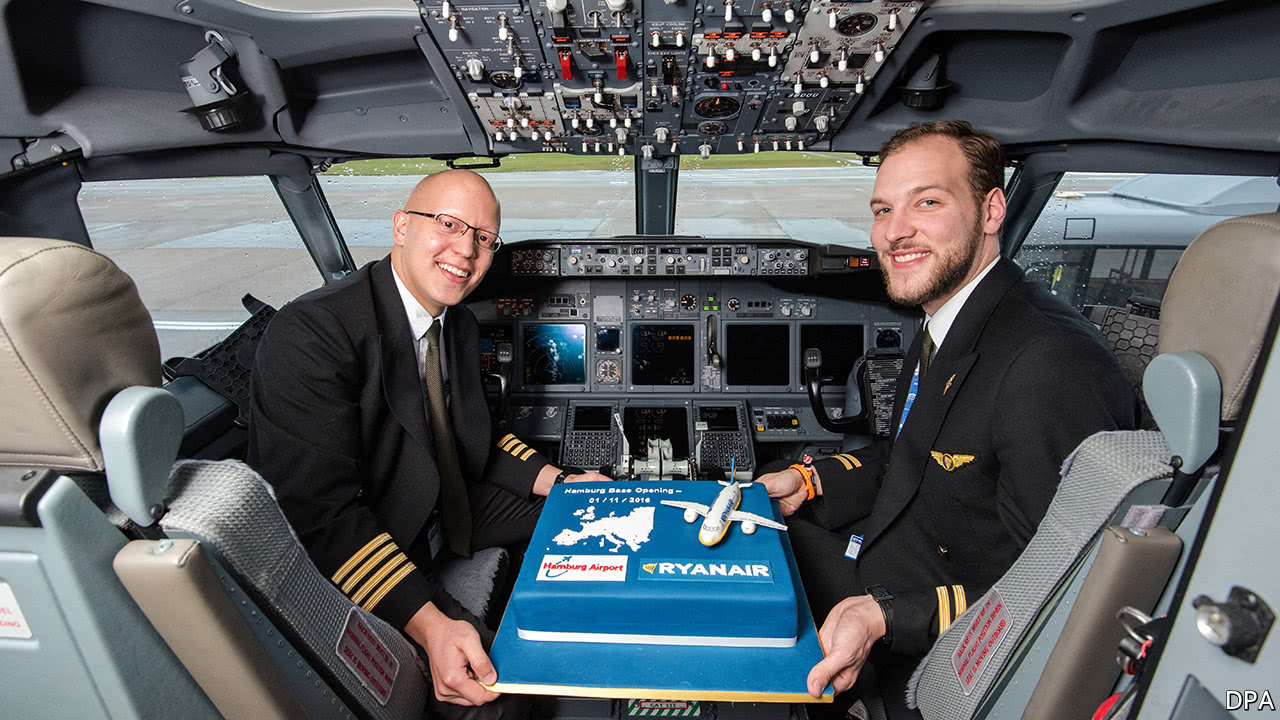
AIRLINES respond to greater demand for travel around Christmas by increasing fares. But this year, Ryanair has found that it is not the only one taking advantage of the desire to be home for the holidays. To avert proposed strikes by pilots across Europe, the Dublin-based carrier offered on December 15th to recognise pilot unions for the first time in its history. The offer came just in time to avert a four-hour strike by Italian pilots scheduled that afternoon. Pilots in Ireland and Portugal also called off a strike they had planned for December 18th. Ryanair may have saved Christmas, but its stock price fell by 8% on the day of the announcement.
Michael O’Leary, Ryanair’s chief executive, acknowledged that union recognition marked a “significant change” for the company. During a dispute with baggage handlers in 1998, Mr O’Leary said that Ryanair would recognise unions “when a majority of our people wishes to do so.” Nonetheless, Ryanair has strongly resisted attempts by its employees to join independent unions, preferring to deal with company “employee representation committees” instead. Ryanair has gone to court to avoid having to deal with unions, and withdrew some services from Denmark following a dispute with local unions there. Indeed, Mr O’Leary, in spite of his attempt to shed a combative image and adopt a humbler tone, in February described unions as a “busted flush” and blamed them for the demise of flag carriers in Europe.
-
Nationalism: further reading
-
The Economist’s playlist of national anthems
-
Foreign reserves
-
Ryanair stops Christmas strikes, but at a cost
-
At 50, “The Graduate” still has much to say about youth
-
A shameful failure to tackle overfishing
A growing shortage of pilots across Europe contributed toward Mr O’Leary’s sudden U-turn on unions, however. Competitors have been poaching its pilots. Norwegian, another rapidly growing low-cost carrier, claims it has pinched 140 of Ryanair’s pilots this year alone by offering them better pay and conditions. This has had costly consequences for Ryanair. In September, it announced the cancellation of over 20,000 flights following a scheduling mix-up that led to a shortage of pilots. To alleviate the deficiency, Mr O’Leary offered large payments to pilots who were willing to give up some of their holiday to help out.
Treating pilots better and recognising their trade unions are some of the steps that Ryanair has taken to hold on to its pilots. But aviation analysts fear that its cost base—currently the lowest of any short-haul airline in Europe—may bloat as a result. Ryanair has grown to become Europe’s largest carrier, thanks in part to its reputation as a low-cost airline that gets its passengers to their destinations on time. The company’s recent difficulties may indicate that simultaneously maintaining good prices and reliability may have become a more difficult task going forward.
Source: economist
Ryanair stops Christmas strikes, but at a cost